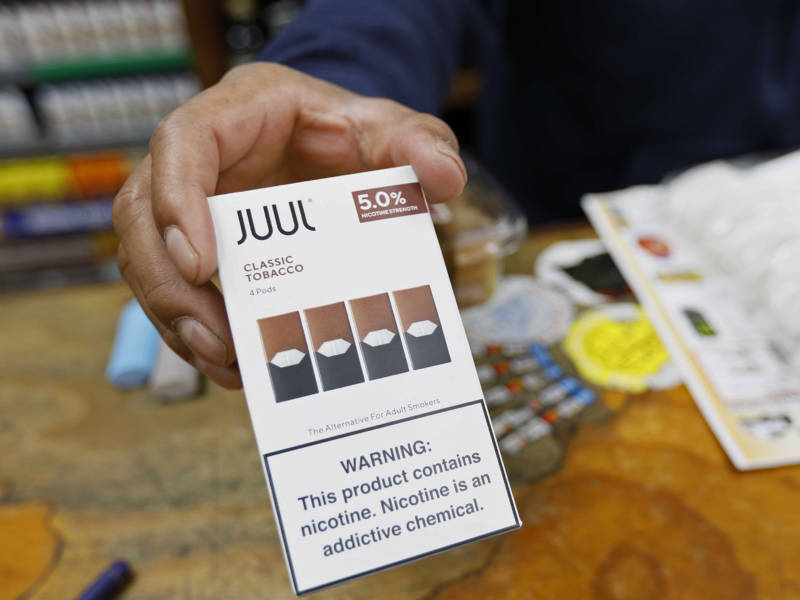News of the departure of Juul’s CEO, Kevin Burns, was accompanied by an announcement that merger discussions have been called off between Philip Morris, the maker of Marlboro cigarettes, and Altria, the tobacco giant that owns a 35% stake in Juul.
Burns will be succeeded by K.C. Crosthwaite, the chief growth officer at Altria.
In a statement, Crosthwaite said vaping products originally were introduced to move adult smokers to a safer alternative. But hundreds of cases around the country of mostly young users experiencing a mysterious breathing ailment thought to be tied to vaping is raising new alarms.
He said the company’s original mission is at risk “due to unacceptable levels of youth usage and eroding public confidence in our industry. Against that backdrop, we must strive to work with regulators, policymakers and other stakeholders, and earn the trust of the societies in which we operate,” Crosthwaite said.
Flavored e-cigarettes represent the majority of Juul’s sales, but analysts have said the company’s decision to stop fighting the Trump administration’s regulations might fend off an even bigger blow to the company: the federal government banning Juul from selling any of its products.
At least 530 people in 38 states have been sickened with a vaping-related lung disease, and nine people have died. Health experts are also concerned about long-term pulmonary issues from vaping.
Yet health experts have not tied the outbreak to any specific product or type of e-cigarette. Many cases of the mysterious respiratory illness are connected to people who have used e-cigarette products to vape marijuana bought on the black market.
States including Massachusetts, New York and Michigan have passed bans on the sale of vaping products and attorneys general in a number of states, including Illinois, are investigating whether Juul violated consumer protection laws by marketing its products to underage teenagers.
Ned Sharpless, the acting FDA commissioner, told a subcommittee of the House Energy and Commerce Committee on Wednesday that the Trump administration’s soon-to-be finalized policy of banning flavored vaping products could change if e-cigarette companies can win federal approval.
“This policy would not mean that flavored e-cigarettes could never be marketed,” Sharpless said. “If a company can show through an application to FDA that a specific product meets the standard set forth by Congress, then the FDA would authorize” the sale of the products, he said.

9(MDAxOTAwOTE4MDEyMTkxMDAzNjczZDljZA004))